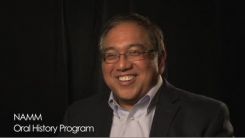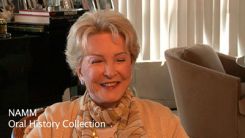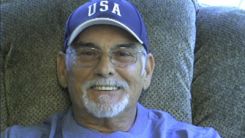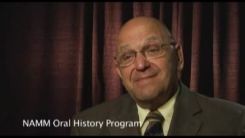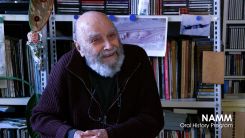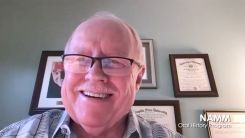Library - In Memoriam
Remembering oral history interviewees who have passed away.
Cecil Ramirez started in the music industry in retail, at the Music Box in Lodi, California. He created a keyboard studio feel within the store in1983, which was an exciting time of technological advances in electronic instrumentation. Cecil remembered the early days of MIDI an
Emmett Chapman was studying guitar when he began playing a two hand tapping style. As he researched the idea he found that he could create a unique instrument and style of playing that would later be explored by musicians of nearly every musical style.
Ginny Mancini always loved singing! When she had the chance to form a backup group for a 17 year old vocalist coming from Chicago to Los Angles for the first time in the 1940s, Ginny jumped at it.
Sonny Osborne and his brother Bobby created one of the most powerful bluegrass sounds of their generation. The Osborne Brothers were powerful in popularity because of their influence as well as their technique, which was not necessarily hard driving, but creative and flowing.
Ron Tutt is best known for playing drums behind Elvis Presley during most of the king’s tours during the 1970s. Ron grew up with a deep passion for music and the drums, which led him to audition for Elvis as he was putting a band together for his Las Vegas comeback.
Mel Wisniewski gave music lessons in a small music store in upstate Wisconsin and soon discovered he was interested in the idea of owning his own store.
Luis de Pablo was a Spanish classical composer who provided works for symphonies, chamber orchestras, operas, choir and film over his long and successful career. He was born in Bilbao, Spain, and by age twelve was composing his own pieces.
Dex Johnson grew up in the music retail business. His mother and father formed their store, Mississippi Music, after World War II and his father became an industry leader, even serving as President of NAMM in the 1970s.
Jim Widner was given a very special opportunity to join his grade school’s orchestra, which provided him an instrument to play. His love of music was fostered years later when he became a student of his highly influential high school band director.
